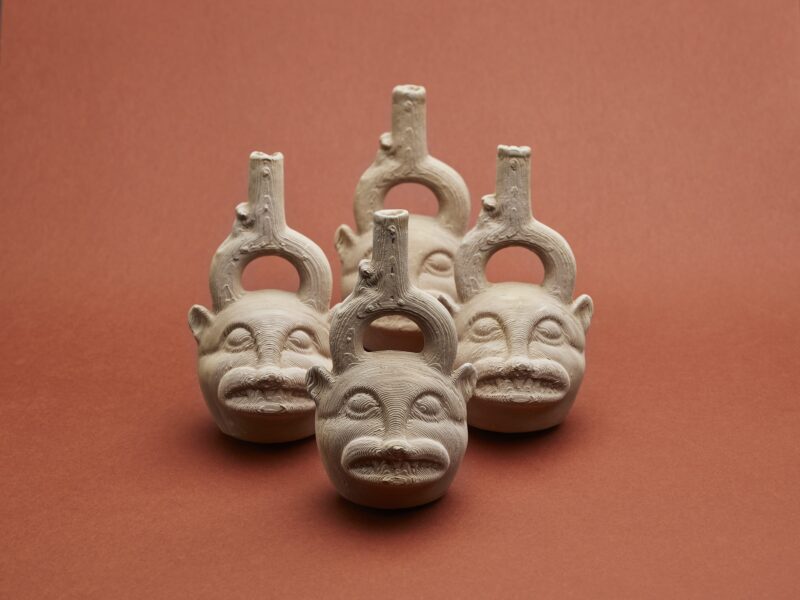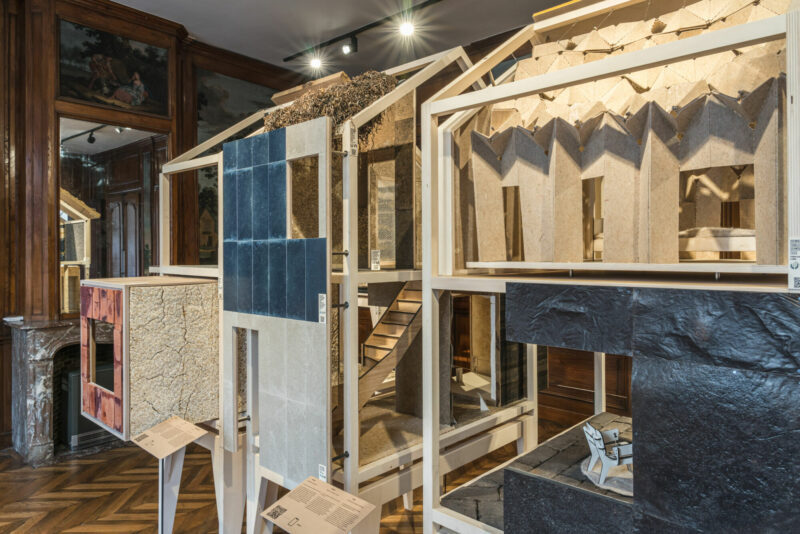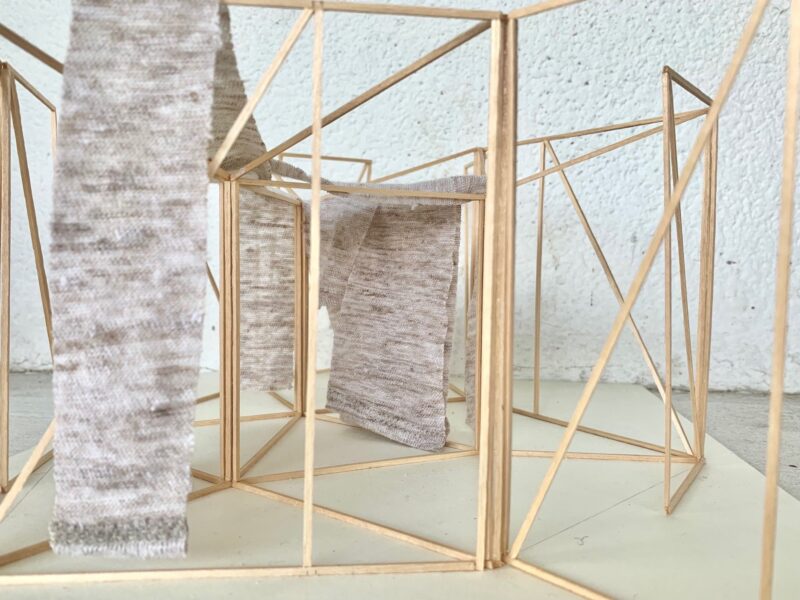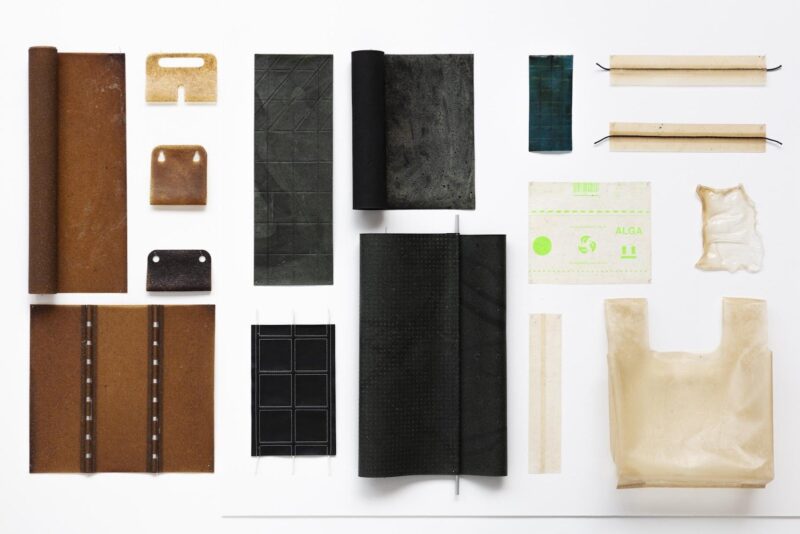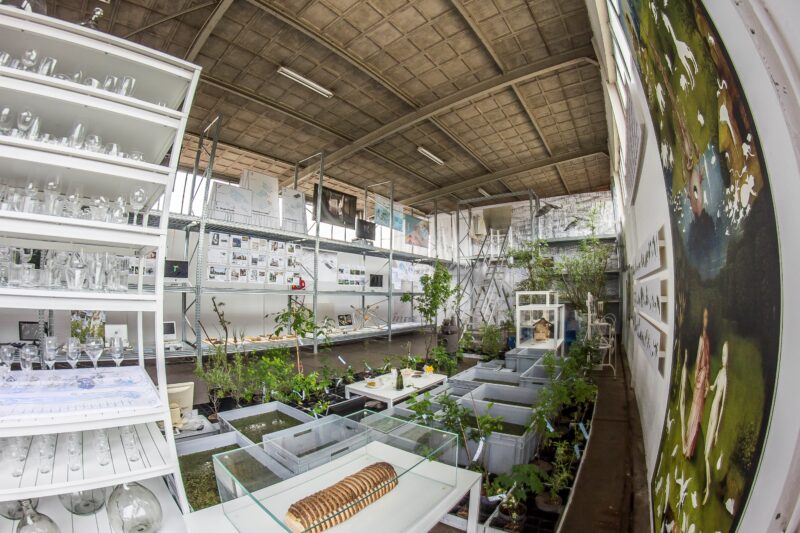
Design Fest Gent: Be Wild, Act & Change!
Ten Day Design Festival in Downtown Ghent
Be Wild, Act & Change. The end of April will see the start of Design Fest Gent, a new biennial 10 day festival that offers designers space to present their ground-breaking ideas. By focusing on sustainability in all its facets, Design Fest Gent not only wants to inspire the visitors and residents of Ghent but also challenge them and encourage dialogue.
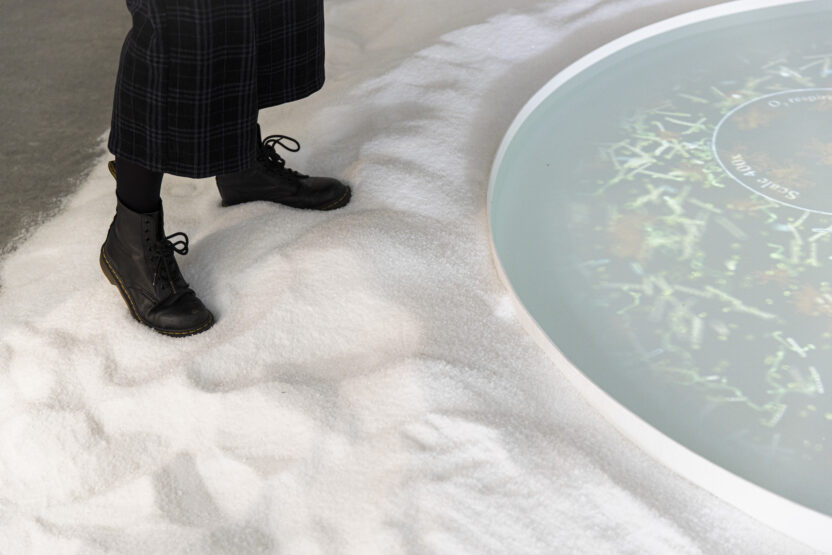
Irene Stracuzzi - On Melting Ground, photo: Selma Gurbuz
Design Fest Gent demonstrates what design can (and indeed should) be: inquisitive, experimental and activistic. The festival encourages creativity and will become a matchmaker for new collaborations between designers, knowledge institutions, organizations and the industry. These parties join forces because design is so much more than making objects. Moreover, the aim of Design Fest Gent is not merely to present things but also to focus on creation, experience, meeting, stimulation and amazement.
An extensive range of installations, workshops and lectures are bundled in three content clusters: Look Back, Move Forward and Do Care. Look Back revolves around the preservation of crafts and the wisdom of ancient cultures. The creative freedom of the maker is key, with room for experimentation at all times and with the process of creation playing an important role. Move Forward is all about research. Collaborations between designers and scientists should be encouraged and cherished, because they think about today's 'wicked problems' and look for solutions. Do Care includes projects that focus on the wellbeing of humans, animals and our planet. We look for new ecological materials and ideas that support and strengthen our mental health.
The festival showcases a unique selection of existing projects and new creation assignments, which were selected under the supervision of curator Siegrid Demyttenaere in close dialogue with the partners of the festival and six co-curators Christel De Maeyer, Nathalie Goethals, Heleen Sintobin, Unfold: Claire Warnier and Dries Verbruggen, Bram Vanderbeke and Sep Verboom. The selection includes five main eye-catchers.
Clay Automaton Lab – Unfold
In September 2018, one of the largest archaeological collections in history was destroyed by fire. No less than 90% of the Museu Nacional in Rio de Janeiro (Brazil) went up in smoke. Fortunately, researchers at the museum had taken hundreds of scans of the artefacts in the years preceding the fire. These scans, which were primarily intended to be used for research, are now the only remaining links to a once rich collection.
It's thereby no coincidence that Design Studio Unfold recently launched a multi-annual research project entitled Atlas of Lost Finds. Joining forces with other researchers, designers and creators, it is investigating how 3D scans and other digital data can be used in a meaningful way. Its website lostfinds.org provides digital access to several different cases. On the one hand, it challenges artists and designers to make use of digital data obtained from scans, while, on the other, it stimulates an interesting discussion on how the items could serve as a starting point for new narratives about ownership, inclusion, tradition and knowledge. An initial opening gambit with a pre-Columbian horseshoe bottle as a model resulted in a collection of 30 special bottles created by artists across the world. And many more scans are waiting to be injected with a new life.
On the occasion of the Design Fest Gent, Unfold and KASK are joining forces for a study into scaling up their 3D printers. In order to be able to recreate Marajoara ceramics- which are often impressively large - on the basis of the 3D scans, a larger machine will have to be built. KASK is making its robot arm available, Unfold its expertise. During Design Fest Gent, Unfold will set up a laboratory in the Design Museum, where various experiments will be conducted with the robot-arm clay printer. Witness some of the first attempts to print a Marajoara urn.
The Exploded View – Biobased Creations
How do we deal with the never-ending waste flows? Will agriculture become a future supplier of building materials? And will this help keep our sustainable homes affordable? The Exploded View Materials & Methods investigates these questions, and invites everyone to participate in this thinking process. The realisation of a home is looked at from a radically new angle. The Exploded View analyses the many applications of a home with great precision, and then reconstructs it with bio-based materials. Lose yourself in a model and a life size blueprint that highlight both what they have already discovered, but also what they do not yet know.
The installation incorporates applications and materials from today, tomorrow and even the day after tomorrow, ranging from products that already exist, but are still not commonly used on building sites, to ideas that will need a lot of support and research to become fully developed. The Exploded View thereby refers to the endless, potential material flows that do exist, but are not yet or hardly ever used in the building trade. Food remnants, textiles, (waste) water or bacteria: nothing is excluded or found to be unsuitable. Innovative construction methods such as local mining, 3D printing and a circular economy also have a part to play in the research. In every case, the purpose is to use materials and methods that make the production circle as small and efficient as possible.
The Exploded View, developed by Biobased Creations in conjunction with The Embassy of Circular & Biobased Building, a group of pioneers from the circular and bio-based construction sector, serves as inspiration for the circular and bio-based building sector. It shows citizens, builders and policy makers the surprising opportunities and attractions. The unthinkable is possible. The power of imagination is heralding a green future.
Nest – LUCA Textiles x KU Leuven Architectuur Campus Sint Lucas Gent x iDrops
A nomadic installation descends upon the Design Museum. A textile womb, a tactile safe space, a NEST. Security and protection are at the heart of this NEST, which aims to disseminate sustainability, not only physically, but also in a social sense. Under the coordination of Marie Mees and Caroline Voet, textile students and alumni of Luca | School of Arts, KU Leuven – the Faculty of Architecture and iDROPS have created an installation to support the psychosocial well-being of young adults suffering from cancer or chronic diseases. Immerse yourself in the NEST and experience how creativity can stimulate and bring about social change.
NEST is based on 2SPACES, a project from iDROPS and Arteconomy in which patients and artists join forces to try to find an artistic interpretation emotions and how to express them. NEST provides a location in which people can meet in a safe and secure environment. Testimonies, conversations, workshops, lectures, creations, films, meditation and sleep: anyone can use the space in their own individual way.
NEST explores the boundaries between textile and architecture. It follows a grid, a framework in which connections are created in which temporary occupants play a part by rolling, folding and feeling textiles. Textiles envelop, provide space but also demarcate at the same time. Larger than a bed, but smaller than a house. Together or alone.
NEST will be located at the Design Museum Gent during the Design Fest Gent. The minimalistic structure of wooden frames will be used for panel discussions on neurodiversity and patient empowerment – or as a chat and listening room. This is how NEST aims to support and foster young people who are ill.
Alga – Studio Samuel Tomatis
Algae are taking over the beaches in Brittany at an alarming rate. Eutrophication – a process in which oxygen is extracted from the water as a result of pollution – allows this organic but polluting and toxic material to proliferate. Unusable? Not according to ALGA, a project run by Studio Samuel Tomatis that highlights a study initiated five years ago that reveals the thousand and one properties of seaweed. Re-purposing local waste and using it as a production material for design and layout is one of the major challenges we are faced with today.
Samuel Tomatis has been collaborating closely with specialists from various scientific fields in recent years. Not only did he understand the intrinsic properties and qualities of algae, he also processed them using artisanal methods. Joining forces with a chemist, Tomatis managed to deploy a semi-industrial process to develop new materials entirely made of algae.
The properties of different types of algae are the basis for a number of practical applications, ranging from furniture to lighting, tools and building materials, food packaging and textile. Moreover, these new materials have fascinating characteristics. Tomatis has a surprising approach to texture, mechanical resistance, flexibility, biodegradability and opalescence – light diffusion.
At Design Fest Gent you will be able to experience first-hand what the close link between science and design can signify in terms of a sustainable future. Follow the path from algae to design, from research to functional applications. As an inter-discipline exploit ALGA not only highlights the diversity, but also how today’s design world can play its part in the pressing debate about sustainability.
Waterschool M4H+ – Studio Makkink & Bey
The water is up to our neck. Waterschool M4H+, a project managed by Studio Makkink & Bey, combines and showcases the work of more than 30 designers, architects and artists in an impressive exhibit. They analyse materials that could be used as (building)materials and/or food, whilst maintaining a responsible approach to the use of water.
Staged at the behest of IABR (the International Architecture Biennale Rotterdam) the research started by asking what the new residential and working environment in the Merwe-Vierhaven area of Rotterdam (M4H+) could look like. Using available coarse and raw materials, the aim is to find sustainable building alternatives. This is how Waterschool M4H+ manages to outline how they are creating living spaces in which various biotopes interact.
Waterschool M4H+ profiles itself as a temporary centre of expertise and considers how water could play a more significant role in education, e.g. they are creating partnerships to integrate artists and designers in the curricula. The objective: to get to grips with alternatives and unconventional approaches to problems.
Waterschool M4H+ is investigating how a range of resources contribute to a circular living environment. Insects, duckweed, seaweed, wood and fungi are the five unconventional resources in the spotlight that could shape our future (co)existence. Using a streamlined amalgam of projects, Studio Makkink & Bey alludes to a future in which art and design will become a more important part of education and, by extension, society. You are cordially invited to join us and dive into, swim and splash in the wondrous world of Waterschool.
Design Fest Gent is taking over downtown Ghent. The locations and their programme:
- Design Museum Gent: the emptied museum shows design projects, gives lectures, workshops and demonstrations, organizes a design nursery, partner projects and much more
- Museum of Industry: focuses on all types of fabric
- DaDa Chapel: contemporary art installations with Maarten Vanden Eynde
- S.M.A.K.: Soulhacker installation & performances CREW | Eric Joris
- De Wilde Route: a route along 17 Ghent design shops where young designers get to work with the shop’s unsold stock
- Gallery Tatjana Pieters, Gallery Casa Argentaurum, Kiosk Gallery and Gallery Atelier Ecru show contemporary art and design related to the DFG themes
- MIRY Concert Hall of KASK & Conservatorium: venue for the larger lectures
- Polestar Space: toont het werk BreaZea (Breathe In/ Breathe Out) by crafting plastics! studio in collaboration with OFFICE MMK.
- Voo?uit Arts Centre: venue for the Impact Gathering and a work by Arnaud Eubelen which recreates the urban context
- St James’ Church: its church chairs are getting a makeover by ONBETAALBAAR in collaboration with CAMPO, 019 & Design Museum Gent

For its programme of workshops and lectures Design Fest Gent uses theme days on ecology, food waste, neurodiversity, water, biobased materials, technology, urban mining crafts and circular building.
There is a wide range of workshops on offer. You can learn to cook in preparation for the end of the world with Sien Vanmaele, work with waste from the textile industry with Isabeau Goddé or think about smart, ecological packaging with packaging expert Bart Calis. In addition, there are lectures and Design Talks. Big names like Reon Brand, head of Future Studies and Innovation at Philips, show how design can shape our future, but there are also more intimate talks, exploring the daily themes.
Visiting information
22.04 – 1.05.2022
Design Fest Gent takes place at various locations in the city. The starting point is:
Design Museum Gent
Jan Breydelstraat 5
9000 Ghent
Day pass: €15
Festival pass: €40
Various discounts apply.
Design Fest Gent is a collaboration between Design Museum Gent, Artevelde University of Applied Sciences, Flanders DC, Museum of Industry Ghent, KASK & Conservatorium (HOGENT Howest), KU Leuven Faculty of Architecture, LUCA | School of Arts, Ministry of Makers and University of Ghent.
Sandra Plasschaert
Cats Communication
Press & PR
+32 479 35 10 39
sandra@catscommunication.be
Bie Luyssaert
Design Museum Gent
Communication
+32 497 59 33 17
bie.luyssaert@stad.gent
